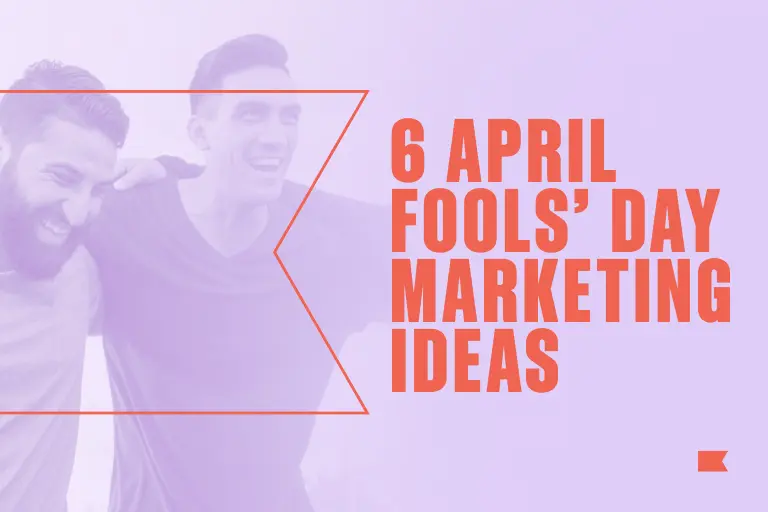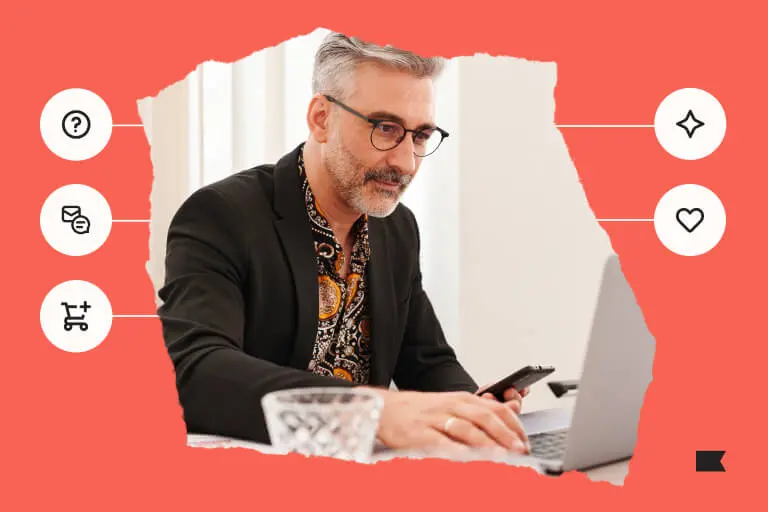10 expert-tested best practices for Black Friday marketing
There’s no one-size-fits-all strategy for Black Friday.
Brands that stand out in an increasingly crowded landscape lean into their unique strengths.
Take lifestyle brand POPFLEX, for example: for Black Friday 2023, they wanted to create an intimate VIP experience for every customer, especially those who signed up for the early-access sale. So they ran a shopping spree giveaway in October, requiring entrants to create holiday wishlists on their site.
Nearly 100,000 customers entered, giving the team plenty of data to use for targeted holiday messaging—and contributing to a 91% YoY increase in Black Friday sale revenue. “The first day of our Black Friday sale last year was our best day in the history of the company,” says Jen-Ai Notman, VP of marketing at POPFLEX.
Or consider Jones Road Beauty, a brand that doesn’t do sales—not even over Black Friday. Instead, their Black Friday strategy involves a limited-edition product drop. For Black Friday 2023, they announced the drop 4 days in advance, drove shoppers to a Klaviyo form where they could sign up for updates, and sent different product messaging to different segments.
It paid off. The first 30 minutes of Black Friday 2023, Jones Road brought in as much revenue as they did in all of Black Friday weekend in 2022, reports Cody Plofker, CMO of Jones Road Beauty—and Klaviyo-attributed Black Friday revenue grew 167% YoY overall.
If you want to see results like those, you’ll first need to figure out what approach will resonate most with your brand’s particular audience.
But in the meantime, there are a few expert-recommended, process-level best practices that make sense for most brands.
1. Start planning early
Advance planning helps the hectic holiday weekend flow smoothly, and improves the quality of promotional creative across channels.
“The sooner we can get things to creative, and the more rounds of edits that they go through—it’s just going to make the campaigns better,” says Megan Edwards, email marketing manager at Tecovas.
Plus, the earlier you start planning, the more creatively you can build excitement around your sale before it starts, says Wei Tan, co-founder of The Orchard Agency.
2. Learn from past campaign performance
No one has better data on your audience than you do—so use it. Recent campaign performance offers the best insight you can get on what’s trending now with your biggest fans.
For example, as a lifecycle marketer, “what’s top of mind for me is what we’ve seen over the past few months performing well for us in emails,” Edwards explains—especially in terms of layouts and landing pages.
3. Build your audience before the rush
The holiday season is a pricey time to cold prospect for leads on paid social, and there’s an alternative: focusing on getting back in touch with people who have already entered your funnel, and letting them know that your sale has started.
How do you make sure your funnel is full to the brim before the holidays? Here are a few key strategies:
You can do this by running broad-brush paid campaigns with hefty budgets in September and October, notes Kristen Tumasonis, marketing director at SuitShop.
You might do this before the holiday rush by offering a discount at sign-up, promising subscribers early-bird access to your holiday sale, or simply optimising your on-site pop-up with forms display optimisation.
During a big spring or summer sale, Alex Melone, co-founder of CodeCrew, recommends emailing everyone who’s engaged with your emails in the past year. Alternatively, you can gradually send to more and more of your list throughout the fall. Just don’t send your first big blast during Black Friday—spam filters are ultra-sensitive around that time, notes Andrei Marin, COO of CodeCrew.
4. Consider an SMS shortcode
If you have 30K+ SMS subscribers, it makes sense to migrate to an SMS shortcode before Black Friday.
Shortcodes come with a monthly fee, but they’re built for high-volume SMS marketing campaigns, unlike the free 1-800 numbers many brands start with.
During Black Friday, 1-800 numbers have extra limitations, and it’s hard to use them to send MMS messages—texts that contain images or GIFs.
Klaviyo’s deliverability and compliance team helps with shortcode procurement, and can typically connect it to a brand’s SMS account within 8–12 weeks.
5. Pause smart sending
Klaviyo’s Smart Sending feature is a great way to put a hard cap on the total number of emails and texts your subscribers receive from you in a given timeframe. If you have a lot of flows active, you don’t want to overwhelm browsers with 17 emails in one day.
Usually.
But Black Friday is such a high-intent shopping weekend, it makes sense to turn Smart Sending off.
“Don’t accidentally have Smart Sending turned on if you’re sending multiple emails over Black Friday weekend that you want everyone to receive,” warns Kristin Bond, founder of Email Snarketing. “I almost ruined a whole weekend of campaigns in the past.”
But she avoided it—and so can you.
6. Segment your contact lists based on engagement—and more
Sending your Black Friday campaigns to highly engaged segments—instead of routinely blasting your whole list—not only drives results, but reduces unsubscribes.
We don’t just mean sending to people who’ve engaged in the last 30 days. We mean sending to people who’ve engaged in the last 24–48 hours of your sale.
Look at Tecovas: they only sent to their full addressable list on the first day of their 2022 Black Friday sale. From there, they targeted customers who had recently engaged with an email about the sale, but hadn’t yet purchased.
This helped Tecovas hit their revenue goals and grow Black Friday revenue from email YoY, all while reducing unsubscribes by 22.8% YoY.
Segmentation on purchase history can be powerful, too. In 2023, Beekman 1802 used Klaviyo’s Peel integration to build segments based on purchase frequency—like frequent shoppers, lapsed one-time buyers, and new subscribers who have never bought.
Then, they identified the messaging each segment likes best, by comparing campaign performance by segment across multiple sends—and were able to send targeted messages at scale during Black Friday 2023, which helped drive 74% YoY growth in email marketing revenue.
7. Leverage multiple channels
Every channel has different strengths and weaknesses during Black Friday. For a bulletproof strategy, use multiple, integrated channels to get your message out.
For example, you might use:
- An all-in-one email and SMS platform, so you can reach out to your contact list on the owned channel where they convert best and save time with centralised reporting
- Klaviyo’s Facebook integration, to create lookalike audiences based on your email contact list or specific email segments
Especially for DTC brands, a diversified digital marketing strategy that blends paid and owned channels is the only way to scale with a manageable customer acquisition cost.
8. Be clear and honest in your messaging
That means don’t offer a discount with 7 tiers. It’s too complicated, and you’ll lose prospects—“keep it to 3 at most,” advises Melone.
Don’t promise a free gift with purchase but neglect to mention it’s only for orders over $100, and definitely don’t apologise for a fake website outage to make your product look popular. There were so many outage apologies last Black Friday, consumers started to wonder.
Just be direct. No deceptive tactics, and no Rube Goldberg-esque offers. It’s a chaotic time for shoppers, and they’re looking for straightforward deals from trustworthy brands.
9. Invest in holiday support
“You have to assume that with these great deals you’re going to see new customers shopping with you,” says Tumasonis. “There might be questions, and being available can make a huge difference in the end.”
Even sporadic support over the holiday weekend goes a long way. Customers don’t need an immediate response—but ideally, they get a response before your sale ends.
10. Optimise your post-purchase experience
Holiday acquisition costs are high. It’s important to optimise and personalise your post-purchase experience so your CAC:LTV ratio stays at roughly 1:3.
Ali Flowers, senior manager of ecosystem marketing at Klaviyo, shared some recommendations on how to do that at Klaviyo’s Own It conference. Big-picture dos and don’ts include:
Maybe you can call out someone’s specific order, or the fact that they’re a first-time buyer—touches like this make people feel seen, and more likely to return.
Flowers recommends trying SMS for transactional messages and shipping updates—the SMS inbox isn’t as crowded during the holiday season as email.
It’s a frustrating customer experience, Flowers says—and with Klaviyo Reviews, it’s avoidable. When Compass Coffee switched to Klaviyo Reviews from Yotpo, they were able to customise the trigger on their review request flow so that it only goes out after an order is delivered, rather than a fixed number of days after the order is placed. In their first quarter with Klaviyo reviews, that new flow drove 70.5% QoQ growth in reviews per quarter.
“Personalisation fuels more than just that net-new acquisition,” Flowers says. “Personalisation is the backbone of your LTV strategy—it’s really going to be contingent on how well you’re able to curate a 1:1 relationship with a buyer.”



